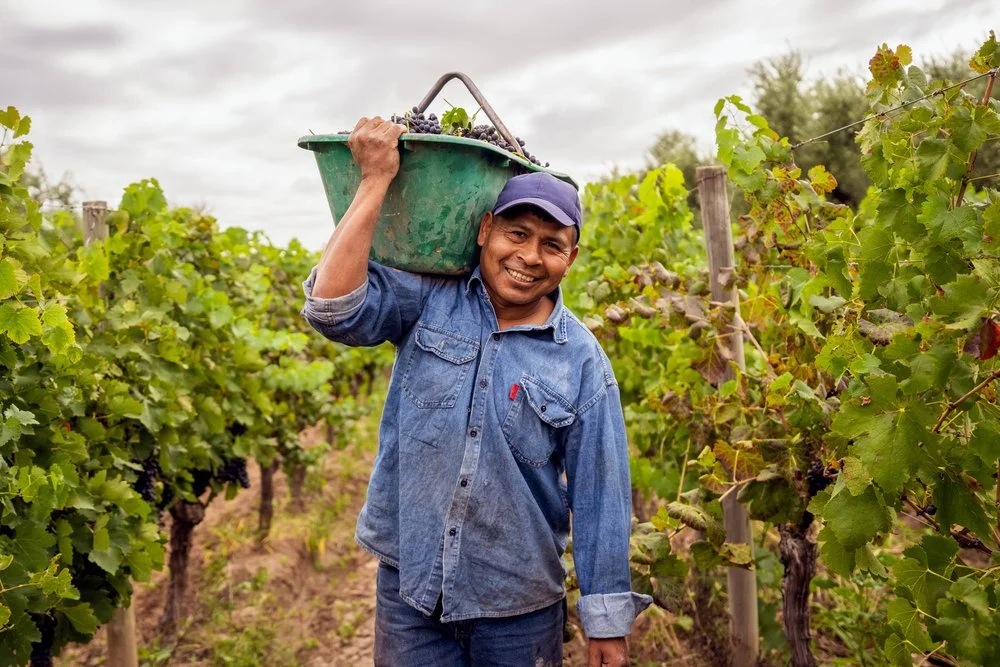Day 36: The kingdom of God will be…given to a people who will produce its fruit
“Strange week,” Andrew says quietly to Peter as they walk along towards Jerusalem. Peter nods.
“Yeah, and Jesus is acting strange too,” Peter says.
Jesus had made a grand entrance on a donkey’s colt, like a new king bringing peace, and half of Jerusalem had turned out to sing his praises. Then, Jesus made a mess of the Court of the Gentiles, turning over the tables of the money changers. That was a sight to behold. He had cursed a fig tree, and he had managed to wound the Pharisees’ pride and make them mad…again!
As they enter Jerusalem, Jesus leads the way. James and John fall into step behind him, muttering something about how Jesus is probably persona non grata at the temple right now.
Jesus passes through the now-peaceful Court of the Gentiles and goes directly to the Court of Israel where the Pharisees (i.e. religious leaders) usually gather. Running his hand along the cool marble column as he passes into the courtyard, he takes a deep breath, sets his jaw, and heads towards the group of Pharisees on the other side.
Jesus leans against a column and tells them a story about a vineyard (Israel) and an owner (God) who has left tenants (religious leaders) in charge of the vineyard. When it comes time to collect his portion of the fruit from the vines, the owner sends several servants (prophets) to bring it back, but the tenants wound and kill the owner’s servants. Finally, the owner sends his son (Jesus) thinking the tenants will respect the son, but instead they kill the son. Jesus’ piercing eyes search the crowd. “Therefore, when the owner of the vineyard comes, what will he do to those tenants?”
A brave voice comes from the back of the group. “He will bring those wretches to a wretched end…and he will rent the vineyard to other tenants who will give him his share of the crop at harvest time.” The disciples exchange furtive glances, and Jesus nods slowly. The Pharisees are visibly agitated as the meaning becomes clear that they are the wretched tenants.
Looking sternly at each of them, Jesus makes it personal.
“Therefore, I tell you that the kingdom of God will be taken away from you and given to a people who will produce its fruit.”
(Taken from Matthew 21:33-44 NIV)
Vineyard Metaphor
Every vineyard owner desires a fruitful vineyard that will make good wine which can be sold at a profit. And every action of a vineyard worker is intended to produce the kind of fruit that will bring a profit to the winery. Thus, a profitable winery is a requirement for ongoing, sustainable work for vineyard workers. As the workers care for the vines, not only do they contribute to the profitability of the winery, they create an environment of longevity for the vineyard and for themselves and their families.
One of the three metrics used to declare a winery sustainable is economics. The vineyards must produce enough good fruit, to make enough good wine, for the winery to be economically viable. If it is not economically viable, if the wine is not sold for a profit , the winery is simply unsustainable.
Sustainability is often simply equated with environmental concerns, which is incredibly important. Environmentally friendly water usage and responsible pest management, for example, are critical components for a vineyard to sustainably produce fruit for years to come.
However, we must remember to include equity and economics in the triad of true sustainability.
Reflection and Meditation
Jesus’ harsh news for Israel’s religious leaders was that they had robbed God and killed his servants. They would lose the privileged position of caring for God’s people, his vineyard. God would have to find new workers to cultivate the vineyard. He would find workers that would honor his abundant generosity and care for them. As the vineyard grew profitable, they would be rewarded. Simply put, he would find new workers that would respect his purpose, his plan, and most of all, his Son.
Take a moment to consider God’s imprint on your life as an image bearer.
How are you caring for the vineyard (the life, the calling, the family, the vocation) that God has put in your care? Is it fruitful? How are you honoring God with the firstfruits, the abundance? Where might you be missing the mark? What kind of fruit is being harvested in this season of your life?
Imagine welcoming Jesus to your vineyard and giving him an extravagant offering of thanksgiving from the bounty of the fruit from harvest. Feel the joy of Jesus declaring your vineyard a “sustainable” vineyard: environmentally (caring for the earth), economically (producing abundant fruit to make and sell wine), and equitably (nurturing the people).
Take joy in being chosen as an image bearer.
“If we are to be God’s image-bearers with regard to creation, then we will carry on his pattern of work. ”

